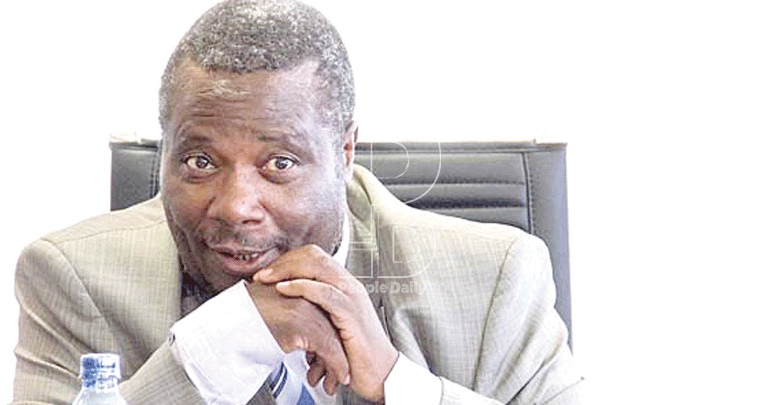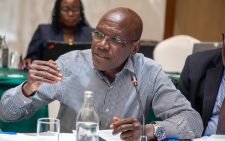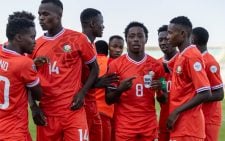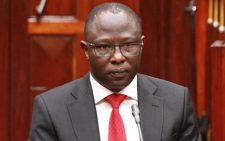Deputy President William Ruto tours test President Uhuru, Museveni relations

Deputy President William Ruto’s ties with President Yoweri Museveni are poised to test the Ugandan leader’s relationship with his Kenyan counterpart Uhuru Kenyatta.
Even as it is apparent that Uhuru has fallen out with his deputy, Museveni has been readily laying the red carpet for the DP who was on Monday barred from visiting Uganda.
Ruto’s travels to Uganda are seen to be calculated to draw regional attention to the next General Election and reinforce the image he is set to join the club of presidents in Eastern Africa.
Museveni is East Africa’s longest serving president and has been pushing for a federation of East African states.
Experts and senior government officials who spoke to People Daily said being a presidential candidate; Ruto’s trips to Uganda are bound to raise eyebrows.
It is widely expected that Ruto will lock horns with Orange Democratic Movement (ODM) leader Raila Odinga who has been endorsed by Uhuru’s key allies. Ruto supporters said he was barred for failure to seek clearance from the Interior ministry.
“It was an act of sabotage and the implications can be far reaching. The implication is that the receiving head of state (Museveni) is in better terms with number two.
Coming at a time the country is headed to an election, it shows that the neighbour and his would-be visitor have some mutual leaning,” said Prof David Kikayi, a retired diplomat who was once the director of protocol at the ministry of Foreign Affairs.
Gross violation
According to Kikayi, Ruto’s decision to visit Uganda without the knowledge of his boss was a “gross violation of protocol”.
“As a deputy president, you cannot interact with a president of a neighbouring country without the concurrence or knowledge of the president of the originating country.
For you to interact, you must have a note from the sitting President,” said the retired diplomat and scholar.
“There are questions about the objective and outcome of the interaction. It is obvious that in such an environment, the President must come up with a strategy to forestall any unintended outcome if it is inimical and protect the territorial integrity, peace and security and sovereignty of the country,” Kikayi said.
A senior ministry official told People Daily that Ruto’s travels, in his official capacity, will be “scaled down because he has become an opponent of the government and its policies”.
“We are dealing with a deputy president who no longer has faith in the government he serves.
The government will be facilitating opposition to its policies by allowing his dalliance with foreign leaders at the level of presidents,” said the official, a diplomat.
The official said that barring the DP’s Uganda trip was an “expression of discomfort with a government leader who had crossed the line”.
According to Prof Macharia Munene who teaches international relations and history at United States International University- Africa (USIU-Africa), Ruto’s move reveals the widening divisions in the Jubilee government as the country heads to the polls.
“It is an illustration of failure of communication at the highest levels. It was a gross violation of protocol by the DP. But the presence of the Turkish national in his delegation should raise more questions.”
Ruto was travelling alongside the three Members of Parliament (MPs) who were first denied clearance but were later allowed to fly.
Among other passengers was Turkish businessman Harun Aydin.
Harun Aydin, was arrested in Germany while he was a student. It was alleged that he was among the leading members of the militant group based in Cologne known as the “Caliph of the Cologne”.
The group wanted to unite the Islamic world in a single caliphate based in a liberated Istanbul.
It is said that Kenyan government officials were aroused by Aydin’s frequent trips to the country from Istanbul, Cairo, and Addis Ababa.
The DP’s office has protested what it termed a change of rules on his foreign travels without notice.
“We are surprised the Deputy President was denied clearance to go on a planned private visit to Uganda.
It is our officers who always handle his travel and this time, they were told, that he must get clearance from Immigration to fly out.
In all his travels, all these years, this has not happened,” said the Ruto’s spokesman David Mugonyi.
Ruto has been a frequent visitor to Uganda for private meetings with Museveni.
On July 6, he accompanied Museveni at an event to lay the foundation stone for a vaccine manufacturing facility in Wakiso District before holding a one-to-one meeting at State House in Entebbe.
The Ugandan media reported that their talks were centred on the push for a political federation for East Africa.









